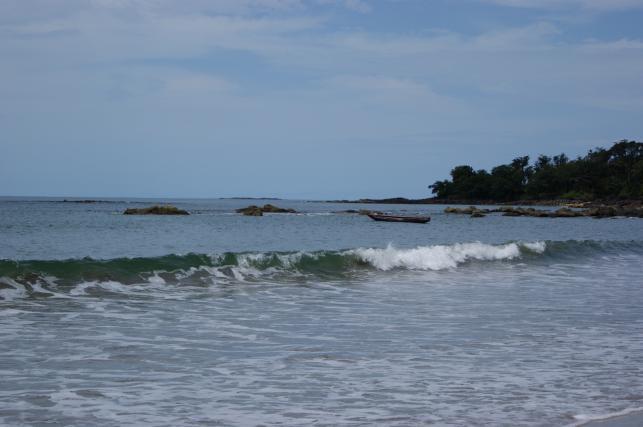Sierra Leone has launched a clean-up operation after the beaches around the capital Freetown became clogged with foul-smelling seaweed, hitting tourism and fishing.
At Lumley Beach in the west end of the city, the white sands have become covered with a brownish-yellow carpet, forcing motorists and fishermen to use masks to ward off the stench since the invasion began a week ago.
A local environmentalist estimated that there are now more than four tonnes of seaweed deposited over the sparkling sands, with the capital’s 14 other beaches also badly affected.
Veteran beachcomber Salifu Deen told AFP Saturday while strolling on the outskirts of the beach, “the seaweed is back in volumes and the stench is unbearable.”
“Most locals and particularly tourists will be put off by the smell,” he said.
Tourism Minister Sidi Yahya Tunis told AFP on Saturday work was beginning to clean the beaches.
“We have undertaken a massive mechanism for a daily clearing exercise using dredgers. The weeds are taking over the beaches and this is unfortunate,” he said.
Professor Percival Showers of the Institute of Marine Biology and Oceanography, Fourah Bay College, said the seaweed had come from the Sargasso Sea, in the middle of the Atlantic Ocean, carried by unusual weather patterns.
Hardest hit by the deposits are fishermen and fishmongers who depend on the daily catch to supply local markets and nearby hotel chains.
“It is difficult for me to face my family as I can see the disappointment on the faces of my wife and four children when I return home in the evening without a catch. We cannot even cast our nets as all we fish out are seaweeds with tormenting smells,” said fisherman Mustapha Koroma.
Fishmonger Mariatu Bundu was equally despondent.
“For many days now, we have gone to the various beaches and returned empty handed. I am worried that I would soon lose my customers as some have said they would rather eat meat instead,” she said.
Source: AFP











